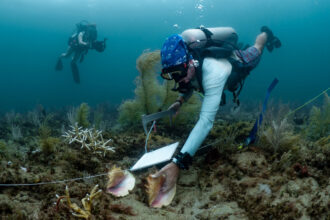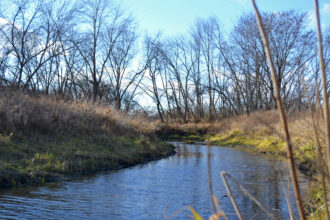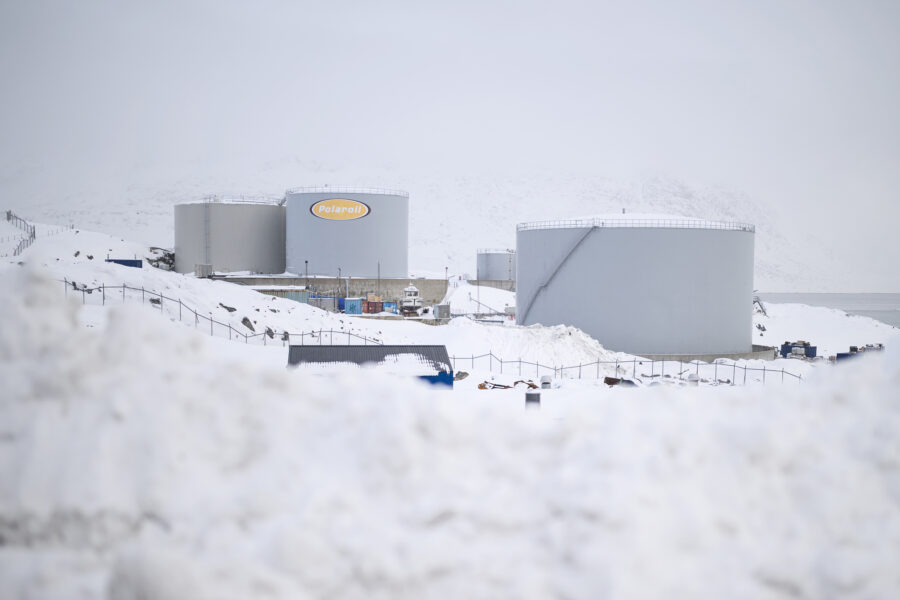Canada’s Federal Court of Appeal revoked the permits for an Enbridge pipeline to carry tar sands crude to the British Columbia coast, ruling that government officials had failed to sufficiently consult the First Nations people who would be impacted by the project before approving it.
The decision, released Thursday, is a devastating blow to the Northern Gateway pipeline, a $7.9 billion (Canadian) project that has been repeatedly delayed since it was first proposed 12 years ago. The rejection also has broad implications for other fossil fuel infrastructure projects designed to move oil from Alberta’s landlocked oil sands to markets overseas.
“At every turn you’re going, you are seeing nails in the coffin of the Enbridge project,” Haida Nation’s Peter Lantin told CBC News. “I don’t think there’s enough room for another nail in the coffin.”
Haida Nation members were among the First Nations and environmental groups that appealed the Canadian government’s approval of the controversial project in 2014.
Canada’s Governor in Council approved the pipeline following a multi-year review, and even then, regulators attached conditions. The project involves twin pipelines that combined would cross about 730 miles of Alberta and British Columbia, including large portions of First Nation-owned land. Regulators said it could only be built if the company met 209 specified conditions. Enbridge Inc. has not yet started construction on the project.
This case was reviewed by a three-judge panel. Two judges found the pipeline’s approval flawed and one judge determined it was satisfactory. According to the majority opinion, some impacts of the proposed pipeline “were left undisclosed, undiscussed and unconsidered” in the government’s final review. Canadian officials were required to address these issues with the First Nations before deciding the fate of the Northern Gateway pipeline—and they did not.
“It would have taken Canada little time and little organizational effort to engage in meaningful dialogue on these and other subjects of prime importance to Aboriginal peoples. But this did not happen,” judges Eleanor R. Dawson and David Stratas wrote in their majority opinion.
“This decision confirms what we have known all along—the federal government’s consultation on this project fell well short of the mark,” Chief Larry Nooski of Nadleh Whut’en First Nation said in a statement.
Environmentalists also applauded the ruling. “Today’s win is a big victory for the environment, and we are proud to have played a part in it,” Alan Burger, president of the conservation group BC Nature, said in a statement.
Although the approval of the Northern Gateway project was reversed by the recent decision, it was not permanently defeated. The federal judges sent the issue back to Canada’s Governor in Council for “redetermination,” requiring further review and additional consultation with First Nations before a new decision would be made on the project.
“We are reviewing Thursday’s ruling by the Federal Court of Appeal, and we will be consulting with our Aboriginal Equity and industry partners before making any decisions,” Enbridge spokesman Michael Barnes told InsideClimate News in an email. “We will provide further comment at a later date.”
The possible implications of the ruling, however, extend beyond this pipeline. TransCanada Corp.’s Energy East pipeline, a project slated to transport oil sands from Alberta to the country’s western coast, has been similarly delayed and also faces objections by First Nations.
Only last week, the Canadian Association of Petroleum Producers released its production estimates for the oil sands, predicting 3.67 million barrels a day would be produced in 2030. That is a lower estimate than the group offered in recent years, but still represents a 55 percent growth over 2015’s output. CAPP, however, said that production is dependent on major pipeline projects such as the Northern Gateway and Energy East pipelines being built.
About This Story
Perhaps you noticed: This story, like all the news we publish, is free to read. That’s because Inside Climate News is a 501c3 nonprofit organization. We do not charge a subscription fee, lock our news behind a paywall, or clutter our website with ads. We make our news on climate and the environment freely available to you and anyone who wants it.
That’s not all. We also share our news for free with scores of other media organizations around the country. Many of them can’t afford to do environmental journalism of their own. We’ve built bureaus from coast to coast to report local stories, collaborate with local newsrooms and co-publish articles so that this vital work is shared as widely as possible.
Two of us launched ICN in 2007. Six years later we earned a Pulitzer Prize for National Reporting, and now we run the oldest and largest dedicated climate newsroom in the nation. We tell the story in all its complexity. We hold polluters accountable. We expose environmental injustice. We debunk misinformation. We scrutinize solutions and inspire action.
Donations from readers like you fund every aspect of what we do. If you don’t already, will you support our ongoing work, our reporting on the biggest crisis facing our planet, and help us reach even more readers in more places?
Please take a moment to make a tax-deductible donation. Every one of them makes a difference.
Thank you,











